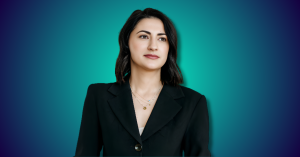What changes do sustainability professionals deem critical for accelerating the green economy transition and fight against climate change? Oftentimes the question is met with toned-down answers, for pragmatic reasons. The necessary transition is in fact a systemic transformation that requires big, bold decisions from our governments and policymakers. And change within the public sector always comes slower than in the private sector.
So, we wondered: what would tech and sustainability entrepreneurs and professionals focus on if they had the power that comes with the position of a World Leader, even for a short while? What do they think could make the transition faster?
Here are some of the critical areas of intervention and action items mentioned by climate tech and sustainability founders:
- Investing in education about climate change and its mitigation from early age to build awareness in the society
- Building public policies around sustainability, to incentivize circularity and waste prevention
- Making reporting of sustainability progress from both public and private organizations standardized and mandatory
- Making renewable energy more affordable via financial incentives and cutting subsidies to fossil fuels
- Making greener public transportation and infrastructure accessible – financing green innovations and startups in the space
The Recursive: If you were a World Leader for a short while, what would you change in 2023 to make the sustainability transition faster?
Dragoş Tuţă-Mihaylov, Founder Sustainability Embassy in Romania, Founder & General Manager The CSR Agency

World leaders, just like any other leader, need to empower and guide and set direction, therefore act as a model and not as an actor. The first thing I would do is investigate the public sector decarbonization status. Currently, public sector spending accounts for 47% of GDP in the European Union, 44% in the United States, 39% in Japan and 18% in India. Thus, as public authority the role in the fight against climate change is practically double: help reduce emissions by transforming our own actions, but above all, shape and accelerate the implementation of decarbonization policies, having a positive impact on all categories of stakeholders.
Secondly, fast-track transposition of European legislation should be facilitated, along with reporting and monitoring progress toward the targets and attracting as efficiently as possible the available European funds for the green transition.
Formulating effective public policies in preventing and mitigating climate change is a top priority, in line with European and regional trends, considering national specificities in terms of natural resources and development of sectors of the economy.
Part of the effort in the sustainability transition process implies a special attention in facilitating the support of companies in reducing their carbon footprint through digital tools that improve energy efficiency on the consumption side of buildings for heating and cooling, as well as a reduction in energy consumption in industrial processes. Also, integrating digital tools into sectoral decarbonization strategies, given that digitalisation is one of the six key transformations needed to achieve the United Nations Sustainable Development goals.
Least but not last, decision makers in companies should be well-trained and prepared to make the transition from business as usual to sustainable business. Sustainability is a science, with very precise metrics, similar to accounting, but lack of knowledge is slowing the process.
Therefore, another key point in my approach to make a change would be making sustainability approachable for studying.
Simona Stiliyanova, Co-Founder and Managing Partner of Osnova, and ESG and Marketing Director of BlackPeak Capital

We cannot accelerate the transition overnight, but one of the first things I would do is incorporate mandatory climate classes in school and preschool curriculum. The next generation should be aware of the climate change issues, what causes them and how we can reduce our impact. It’s important though that we don’t put the blame on the individuals, but focus on our power instead. Strong civil societies are built of well-educated people who know how to think critically, vote and keep lawmakers and businesses accountable for their actions.
In terms of business, we need to rely on data and science. A good start is cutting all greenwashing practices immediately and adopting unified goal-setting and reporting standards for the big corporations (luckily, the Corporate Sustainability Reporting Directive – CSRD – is already coming into force), as well as simplified ones for SMEs. We must be careful to balance having clear standards and getting small companies stuck in costly overreporting.
I would also focus on circularity and waste prevention policies such as Sustainable Product Policies and Deposit-Return Systems.
Last, but not least we must ensure that sustainability is affordable for everyone and we leave no one behind. One of the steps is by making renewable energy more affordable and combining it with energy efficiency measures in all public institutions.
Regarding local municipalities there are many great examples of zero waste and circular models, so we need to study and adapt them everywhere else. We also need to make public transportation and infrastructure accessible to encourage people to leave their cars on their daily commutes.
Enriko Marinov, Co-founder and CEO of Cyrcl

As a co-founder of a micromobility start-up, I’ll focus my thoughts on transport which is one of the most polluting industries, second only to energy (electricity and heating).
Currently, people in developed countries, especially in Western Europe, have plenty of sustainable options to get from point A to point B. Whether it’s a short-, mid- or long-distance the alternatives are mostly there. How to get all countries there in the shortest time possible?
If I was a World Leader for a day, I would ask the governing bodies across the globe to create Mobility Challenges and evaluate competing ideas for sustainable solutions concerning both the mode of transport and the infrastructure. Municipalities need to look after micromobility solutions (i.e. bikes, scooters, etc.), regions should evaluate within-country transport (i.e. electric vehicles, high-speed trains, etc), and countries have to take care of country cluster alternatives (i.e. high speed trains, hyperloop, etc.)
The best ideas in each category/governing body could be financed through public-private funds in order to ensure the best of both worlds.
The basic idea is to create a start-up environment within a sustainable framework which surely is the best way to promote innovation.
Daniel Pintilie, Head of Projects, Romania at CLARITAS Investments and founder of WATTO Stations

- Set ambitious, science-based targets
- Invest in innovation and R&D
- Invest in education – shifting mindsets so that people appreciate the interconnections between people and the planet
- Invest in green projects
- Invest in infrastructure
- Build public policies around sustainability
- Rethink access to nutrition whilst securing sustainable livelihoods for producers and restoring nature
- Stop subsidizing fossil-fuels and fully supporting carbon-free sources of energy
- Eliminate plastic use
- Rethink water use and sanitation
- Set tighter standards for water and air pollution
- Develop recycling programs
Olga Rajcic, Co-founder of Challenger, YTILI Fellow 2021/2022, Program Manager at Macedonian incubator for Social Entrepreneurship

This is a topic for which there should be a broad strategy incorporating all segments (government, private sector and NGOs), as well as detailed action plans for each suggested strategic step. However, if I would focus on these first five steps:
- Governmental organizations should report their environmental impact, thus increasing transparency, acting as a role model for other parts of the economy.
- There should be stronger cooperation for implementation of strategies and action plans among private, governmental and non-governmental sectors. A multi-sector approach is needed to tackle this transition faster, thus cooperation is a MUST.
- There should be incentives for green investments – more funding for the private sector in order to start rapidly investing in renewable energies, or any other sustainability transition. Governments should be bolder in incentivizing the market and mandating change.
- Companies should have a Corporate Social Responsibility strategy, and report its implementation. There could be a national industry-based competition and public ranking for CSR activities and its impact.
- Governments in every country need to recognize the need to speed economic growth incorporated with green transitioning. However, nothing will be possible without long-term commitment, increased investment, innovation, and collaboration between all parties in each society.








